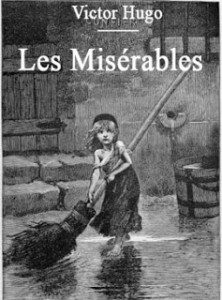Chris Hedges sent me looking for this, from Victor Hugo in Les Miserables:
On the part of the selfish, the prejudices, shadows of costly education, appetite increasing through intoxication, a giddiness of prosperity which dulls, a fear of suffering which, in some, goes as far as an aversion for the suffering, an implacable satisfaction, the I so swollen that it bars the soul. …
That’s harsh. It’s particularly harsh because it’s so precisely accurate.
“A fear of suffering which, in some, goes as far as an aversion for the suffering” diagnoses the disease now afflicting American politics. Whether it’s food stamps or gun safety, lead and mercury poisoning or substandard schools, access to health care or the dual mandate of the Fed, this is what shapes our discourse.
 This accounts for the great mystery at the heart of American politics — the backwards flow of resentment. In America, the wealthy resent the poor, the powerful resent the powerless, the well-fed resent the hungry, leaders of the dominant religion resent religious minorities, privileged whites resent people of color, privileged men resent women.
This accounts for the great mystery at the heart of American politics — the backwards flow of resentment. In America, the wealthy resent the poor, the powerful resent the powerless, the well-fed resent the hungry, leaders of the dominant religion resent religious minorities, privileged whites resent people of color, privileged men resent women.
This is an enigma. It seems impossible. The poor do not deprive the rich, so how is it even possible for the rich to resent them? We can understand how the downtrodden might resent those who have beaten them down, but what possible reason could there be for those at the top to resent those they grind beneath them? There is no rational basis for this resentment — no way of explaining it.
Hugo offers a theory: The fear of suffering can fester into an aversion for all who suffer. Those who suffer are a reminder of the thing we fear. And so we come to resent those who suffer, and therefore we seek to punish them.
That fits the confounding facts. It helps us to understand the disgraceful, gravity-defying miracle of reverse resentment.












